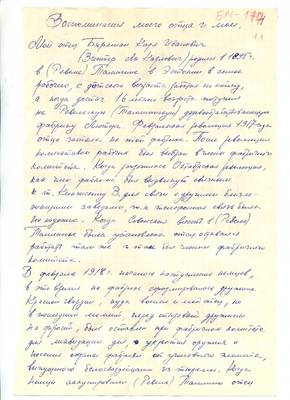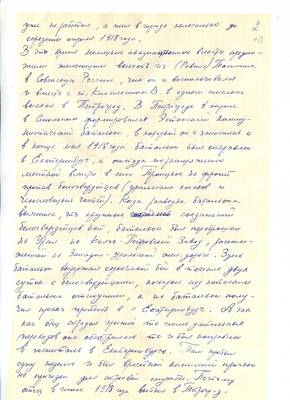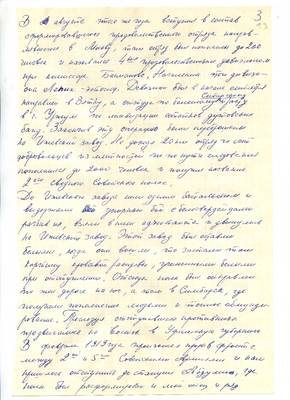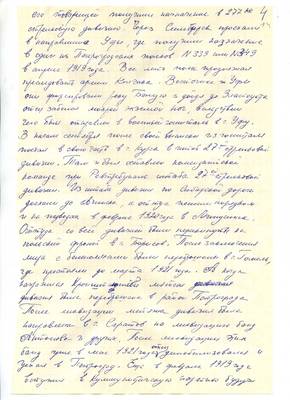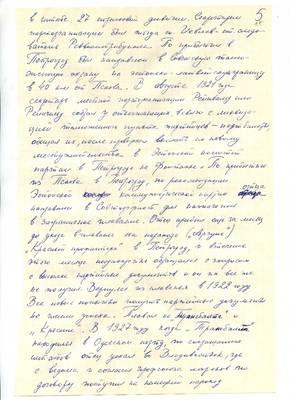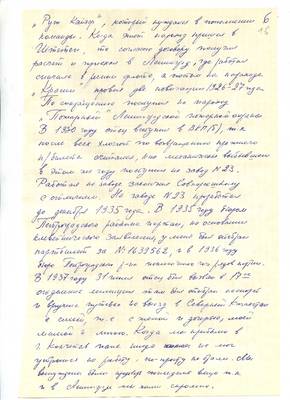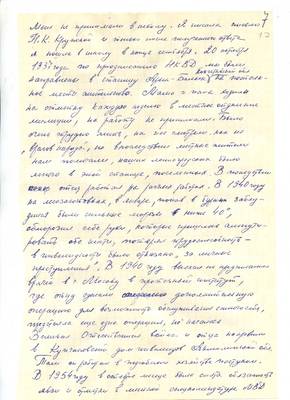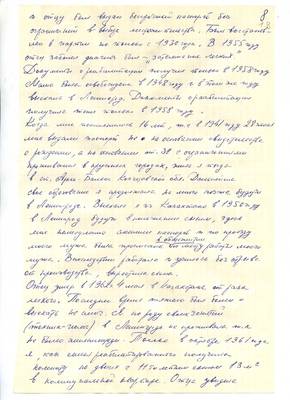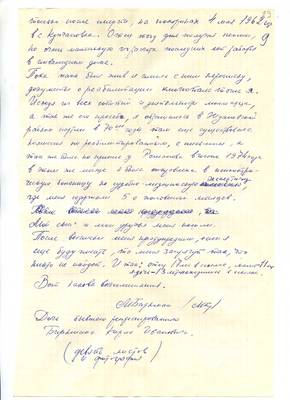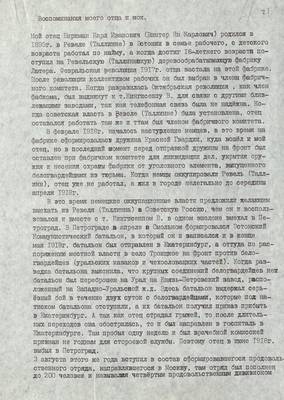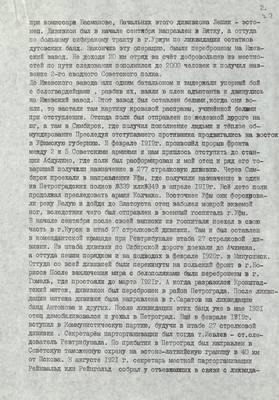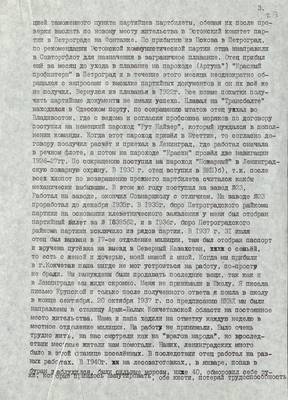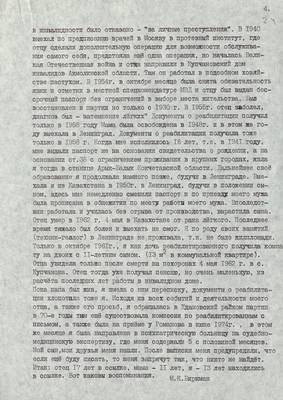Birkman Karl Ivanovich (Winter Jan Karlovich)
2. Memoirs of Birkman K.I. about his revolutionary activities together with Kingisepp V.E., participation in the battles of the civil war, labor activity, expulsion from the party and exile with his family to Kazakhstan, recorded and supplemented by the memoirs of Birkman's daughter M.K. (4 sheets, 4 copies, typescript)
Names (1)
Birkman Karl Ivanovich
Born in 1895 in Reval (Tallinn), in a working class family; Estonian. In the labor movement since 1917 - member of the factory committee of the Luther woodworking factory (liaison for Kingisepp V.), member of the All-Union Communist Party (bolsheviks) since 1919. In 1918 he joined the Estonian Communist Battalion and fought in battles against the White Guards in the Urals. In the ranks of the 4th Food Division, later renamed the 2nd Combined Soviet Regiment, he fought in Siberia and on the Volga. In April 1919 he was assigned to the Petrograd Regiment No. 339 (or 349), and took part in battles against Kolchak's army. From September 1919 he remained in the commandant's command at the Revolutionary Tribunal of the 27th Infantry Division, demobilized in March 1921, and came to Petrograd. In 1930 he entered Plant No. 23, where he worked until 1935. He lived in Leningrad (Ropshinskaya St., Bldg. 1/32, Apt. 9). In 1936 he was expelled from the party, on July 31, 1937 he was exiled with his family to Northern Kazakhstan, the village of Aryk-Balyk in the Kokchetav region. In 1940, having frostbitten his hands while logging, he lost both hands. He was denied disability "for personal crimes" and sent to the Kupchanovsky Home for the Disabled in the Akmola Region, where he worked as a shepherd. In 1954 he received a passport with no restrictions on his choice of place of residence. He was rehabilitated in 1956. He died in 1962.
